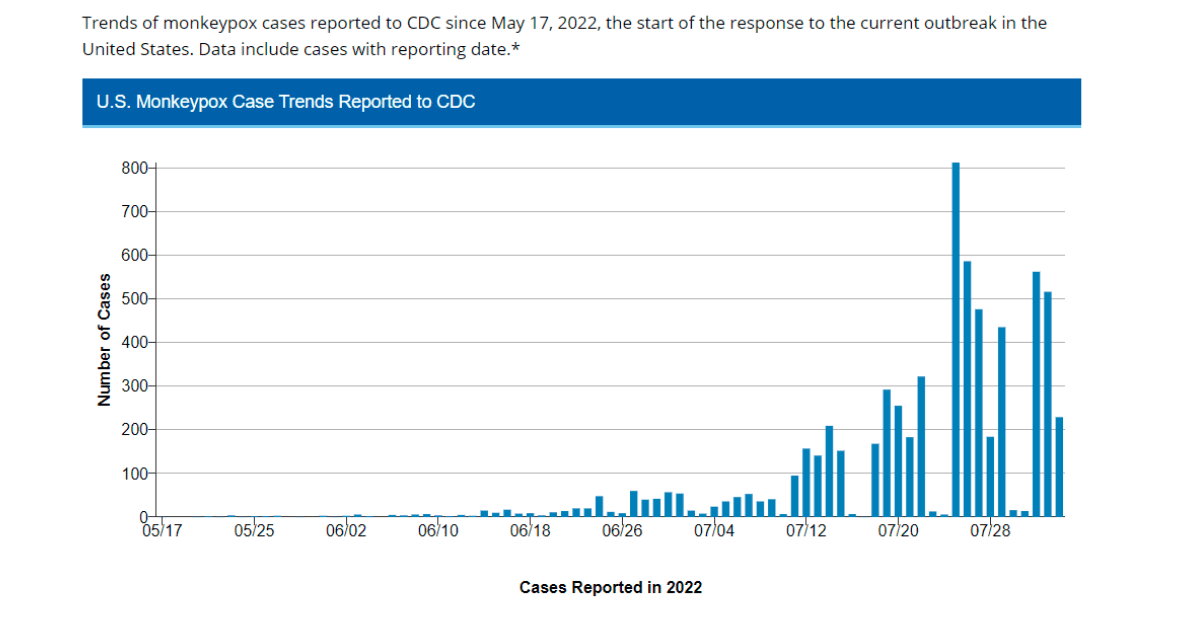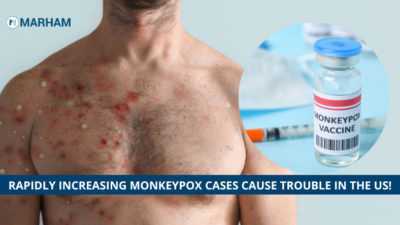On Thursday, 4th of August 2022, the Biden administration declared the current monkeypox outbreak a public health emergency in the US. According to health experts, the number of cases in the United States has reached over 7,101.
Monkeypox is a rare virus that is similar to smallpox. The virus is believed to have originated in Gambia and has since spread to Nigeria, England, and now the US. The symptoms of Monkeypox include fever, headache, muscle aches, and a rash that typically starts on the face and spreads to the rest of the body.
The US government has taken this step almost two weeks after the World Health Organization (WHO) declared its highest level of emergency alert in response to a worldwide increase in cases.
President Joe Biden has been under increasing pressure to do more to combat the spread of this monkeypox outbreak. Public health professionals suggest the illness is most prevalent among men who have intercourse with men.
Politicians in towns with a substantial LGBT population, such as San Francisco, have stated that not enough is being done to safeguard the group.
The Secretary of Health and Human Services (HHS), Xavier Becerra announced:
“We’re prepared to take our response to the next level in addressing this virus, and we urge every American to take monkeypox seriously.”


According to the recently updated data on monkeypox from the Centers for Disease Control and Prevention:
The monkeypox epidemic, which was initially detected in the United Kingdom in mid-May, has already resulted in over 26,864 cases being reported by more than 80 nations worldwide. More than 7,101 of these instances have been documented in the United States.
Is there a Vaccine for Monkeypox?
Yes, JYNNEOS (also known as Imvamune or Imvanex) is a vaccine licensed by the United States Food and Drug Administration (FDA) for the prevention of Monkeypox virus infection.
Secondly, ACAM2000 is a vaccine approved by the FDA for use against smallpox and made available for use against monkeypox under an Expanded Access Investigational New Drug application.
According to the HHS Fact sheet published last month, it has distributed about 200,000 JYNNEOS vaccinations, has accelerated the inspection of around 800,000 vaccines for distribution this summer and has procured millions more for delivery in mid-2023.
However, the cases of monkeypox are rapidly increasing despite the ongoing vaccination and diagnostic services being provided by the Health and Human Services department (HHS).
There is currently no evidence regarding the efficacy of these vaccinations in the present monkeypox outbreak. For maximum development, the immune response takes 14 days after the second dosage of JYNNEOS and 4 weeks after the ACAM2000 dose.
What are the necessary precautions to prevent Monkeypox?
As per the World Health Organization information on monkeypox:
Since Monkeypox requires intimate contact to spread, it is not as infectious as other viruses. You should avoid the following types of contact:
- face-to-face
- skin-to-skin
- mouth-to-skin
- mouth-to-mouth
- a contaminated environment
- an infected animal to spread
To prevent future spread, the WHO is reacting to this monkeypox outbreak as a top priority. WHO is focused on learning more about how the virus is spreading during this epidemic and preventing more individuals from being sick. Increasing public awareness of this epidemic can reduce the spread drastically.
There are no particular treatments for monkeypox virus infections according to CDC. However, antiviral medications and vaccinations developed to guard against smallpox may be used to prevent and cure monkeypox virus infections.
Antivirals, such as tecovirimat (TPOXX), may be prescribed for persons who are more prone to become very ill, such as those with compromised immune systems.
If you or anyone you know is having symptoms of Monkeypox, it is highly recommended to consult a doctor as soon as possible. You can speak to a doctor online via the Marham app today!

